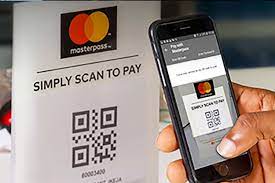COVID-19 has changed the digital landscape and has heralded an era of innovation and products that will be digital-focused as well as achieve the contactless target even post-pandemic.
The global pandemic has provided a unique opportunity for financial institutions to be innovative with the available payment options and create platforms to promote increased cashless transactions.
- 2023 presidency: Why PDP panel de-emphasised zoning – BoT member
- Tuberculosis: Study assesses infection risks among health workers in HIV clinics
It was in keeping with Global pace that the Nigeria Inter-Bank Settlement System Plc (NIBSS) penultimate week, launched the Nigeria Quick Response (NQR) payment solution; an innovative payment platform implemented on behalf of all financial service providers.
NQR codes are barcode-like tokens that mask data. These tokens are then used for the transmission of data used for authentication of payments. It could be static and reusable or dynamic which can be scanned only once.
The New Quick Response code solution offers a robust platform that delivers instant value for transactions by simply scanning to pay.
This Payment Solution designed to be “low cost” for merchants would see shoppers scan a QR code generated by a seller to pay for an item. Each code will have unique details containing the information relating to the transaction and would link with a customer’s Banking App, already enabled on their Smartphone.
NQR provides many advantages over existing e-payment solutions to both merchants and payers. These include Instant value to merchants for all transactions; Zero cost of onboarding, infrastructure and otherwise, to the merchant; Instant notifications to both merchants and payers of payment made; Lower transaction fees across the various price bands; Little to no chargeback or dispute issues, as transactions are first authorized at the payer’s bank before being pushed to the merchant’s bank (push transactions) and a reconciliation and reporting portal for merchants.
There are about 37 million micro, small and medium scale enterprises (MSMEs) in Nigeria according to a report by the Small and Medium-scale Enterprises Development Agency of Nigeria (SMEDAN). These businesses require efficient but cheap payment options due to their relatively small profit margins.
Speaking at the launch, the CEO of NIBSS, Mr Premier Oiwoh said: “With more people being able to pay for goods and services with just their Smartphone, the NQR Payment is about re-creating the Nigerian payment experience whilst deepening financial inclusion in the country.
“Digital transactions supported through the NQR code payments will promote and enhance consumer payment experience while driving growth for business owners.”
The Deputy Managing Director of NIBSS, Mr Niyi Ajao said the NQR payment solution will reduce the cost for merchants, improve business activities in the country and deepen financial inclusion.
According to Ajao Nigeria is already making strides at the global level with its robust payment systems that have been described as globally competitive and highly innovative.
The NQR payment solution will be deployed by deposit money banks to unlock a wealth of extra benefits that will transform the way Nigerians choose to pay for goods and services at all levels.
Lending the support of the Apex bank to the Initiative, The Deputy Governor, Financial Systems Stability of the Central Bank Of Nigeria (CBN) and Chairman, NIBSS, Mrs Aishah Ahmad, commended the NIBSS team for this trailblazing achievement; assuring that the CBN as the regulator of the banking and payment system in Nigeria is committed to providing an enabling regulatory environment that ensures interoperability, proper market conduct and continued innovation within the financial services ecosystem to foster healthy competition, high-quality service and financial inclusion.
“Against this background, the Bank recently released the Regulatory Framework for Sandbox Operations in Nigeria and the Guidelines on Open Banking with the objective of opening up the terrain for more transformative ideas and encouraging start-up companies to grow and contribute to the overall economic development in Nigeria,” she said.
In furtherance of its mandates to, ensure the safety and stability of the Nigerian Financial System, promote the use and adoption of electronic payments and foster innovation in the payments system, the CBN in January 2021 issues the Framework for Quick Response (QR) Code Payments in Nigeria.
Quick Response (QR) Codes are a kind of matrix barcode representing information presented as square grids, made up of black squares against a contrasting background that can be scanned by an imaging device, processed and transmitted by appropriate technology.
These codes can be used to present, capture and transmit payments information across payments infrastructure.
The technology further enables the mobile channel to facilitate payments and presents another veritable avenue for promoting electronic payments for micro and small enterprises.
The CBN framework basically provides regulatory guidance for the operation of QR Code payment services in Nigeria. It aims to ensure the adoption of appropriate QR code standards for safe and efficient payments services in Nigeria.
Popularised by Chinese Big Techs Ant Financial and Tencent through WeChat and AliPay since 2011, more countries have since been inspired to adopt universal QR code systems.
Countries like China, Bangladesh, Thailand, Malaysia, India, Singapore and recently Ghana have developed and implemented a common QR code standard to facilitate retail payments.
Experts have posited that the implementation of the QR Code payment solution is unarguably the biggest thing going on in the e-payment ecosystem in Nigeria today.
Not only that the global payment brands, VISA and MasterCard are involved, but the local biggies led by Interswitch and Remita are also working on their QR payment projects
Experts have posited that QR codes payment can be the best driver of mobile payment and POS in Nigeria if well dimensioned and implemented by the stakeholders. It can revolutionise the way payments are made across the country.
These experts argue that Small businesses that cannot afford the inbuilt cost of traditional POS solutions would benefit a lot from QR code payments because it will improve the ease of making payments for goods and services. From a practical point of view, QR codes will enable customers to complete payments on the spot and speedily.
Another benefit is that QR codes eliminate the need for customers to pay with their cards at payment terminals, as the only equipment required is a mobile device such as a smartphone. This will certainly improve the overall customer experience.
Experts say, due to the encrypted nature of QR codes, they provide a more secure and reliable means of payment – arguably even more so than card payments.
NIBBS has explained that the National QR based payment solution will unify the available closed QR code schemes in the country for consistent user experience and to accelerate digital adoption.
NIBBS also argues that it will augment payment options on existing channels, deepen financial inclusion, grow economic & business activity, reducing the cost of access to financial services and Lower Transaction Cost (Keep your transaction costs down)
COVID-19 has forced governments in China, France, and Qatar to use QR codes to actively track the health status of their citizens – proving the technology’s relevance beyond payments.

 Join Daily Trust WhatsApp Community For Quick Access To News and Happenings Around You.
Join Daily Trust WhatsApp Community For Quick Access To News and Happenings Around You.


